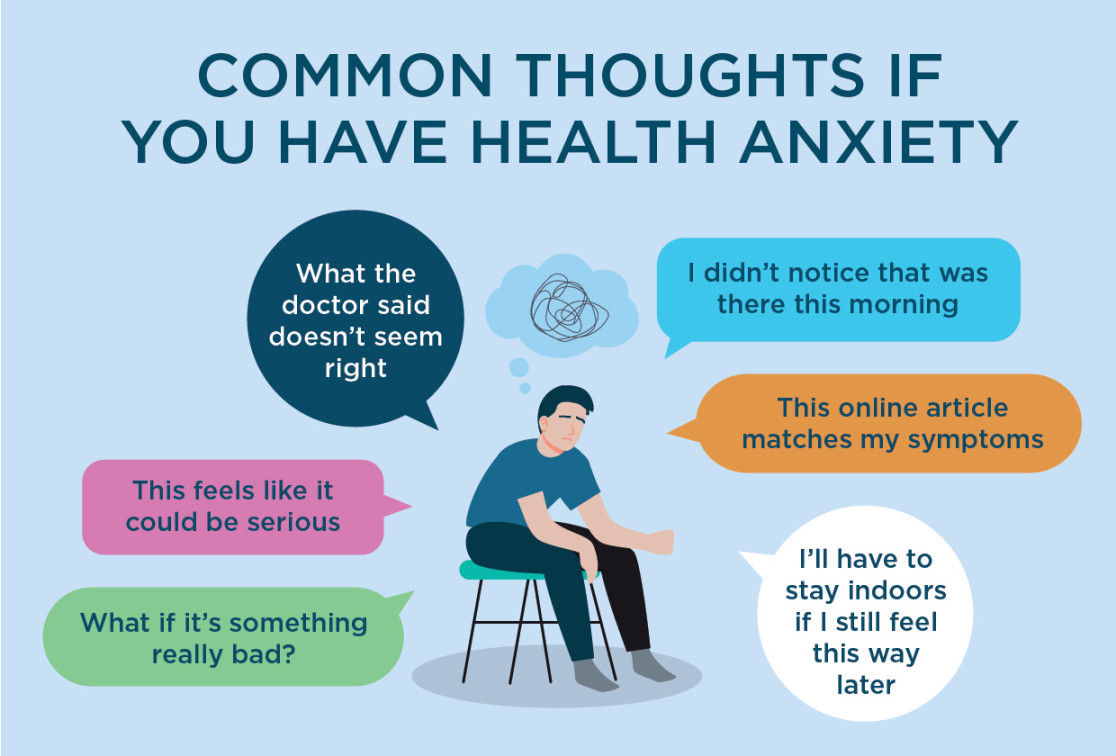Disclaimer: This article is intended for informational purposes only and does not constitute medical advice. Please consult with a healthcare professional for any health concerns.
Introduction
Have you ever found yourself fixated on a minor twinge, convinced it’s the harbinger of a catastrophic illness? Or perhaps you’ve spent hours researching a rare disease, only to find yourself more anxious than before? If so, you might be a “worry well,” someone who tends to overthink their health. While it’s natural to care about your well-being, excessive worry can have a significant impact on your quality of life. In this article, we’ll explore some strategies for managing health anxiety and cultivating a healthier relationship with your body.

1. Recognize the Signs of Health Anxiety
The first step in addressing health anxiety is to recognize the signs and symptoms. Here are some common indicators:
Excessive worry about physical symptoms: You may find yourself constantly checking your body for signs of illness, even when there’s no apparent reason for concern.
2. Challenge Negative Thoughts
One of the most effective ways to manage health anxiety is to challenge negative thoughts. This involves identifying and questioning the validity of your worries. Here are some questions to ask yourself:
Is this thought based on facts or fear?
By challenging negative thoughts, you can begin to replace them with more realistic and helpful perspectives.
3. Practice Mindfulness and Relaxation Techniques
Mindfulness and relaxation techniques can help reduce stress and anxiety. Some effective practices include:
Meditation: Meditation involves focusing on the present moment and letting go of negative thoughts.
4. Cultivate a Healthy Lifestyle
A healthy lifestyle can help boost your immune system and improve your overall well-being. This includes:
Regular exercise: Regular physical activity can help reduce stress and anxiety.
5. Seek Professional Help
If your health anxiety is significantly impacting your quality of life, it may be helpful to seek professional help. A therapist can provide you with tools and strategies for managing your anxiety and improving your overall well-being.
Remember, you are not alone. Many people struggle with health anxiety. By understanding the signs and symptoms, challenging negative thoughts, and practicing self-care, you can begin to take control of your health and live a more fulfilling life.
The Worry Well’s Dilemma
Imagine a world where every ache, every sniffle, is a potential harbinger of doom. This is the reality for many of us, the “worry wells” who dive deep into the murky waters of hypochondria. We obsess over every symptom, scouring the internet for the worst-case scenarios. But is this constant vigilance really keeping us healthy? Or is it actually making us sick?
The Psychology of Worry
The human mind is a marvelous machine, capable of incredible feats. Unfortunately, it’s also a master of self-sabotage. When we’re constantly on the lookout for threats to our health, our brains become hyper-vigilant. Every twinge, every itch, is analyzed, dissected, and magnified. This can lead to a vicious cycle of fear, anxiety, and physical symptoms.
The Physical Manifestations of Worry
Chronic stress, a common byproduct of excessive worry, can wreak havoc on our bodies. It can cause headaches, digestive problems, insomnia, and even weakened immune systems. When we’re constantly stressed, our bodies are in a state of fight-or-flight, which can lead to a host of health issues.
The Internet: A Double-Edged Sword
The internet has revolutionized the way we access information. But it’s also become a breeding ground for misinformation and fearmongering. When we’re feeling anxious about our health, it’s easy to turn to the internet for answers. Unfortunately, the information we find can often be misleading or downright terrifying.
Breaking the Cycle of Worry
So, what can we do to break free from the cycle of worry and live healthier, happier lives? Here are a few tips:
Challenge Negative Thoughts: When you find yourself worrying about your health, take a step back and challenge your negative thoughts. Are they based on facts or fear? Try to replace negative thoughts with more positive, realistic ones.
Remember, you’re not alone in this. Millions of people around the world struggle with health anxiety. By understanding the psychology of worry and taking steps to manage it, you can break free from the cycle of fear and live a healthier, happier life.
 Udento Lifestyle & Health
Udento Lifestyle & Health




